Blog
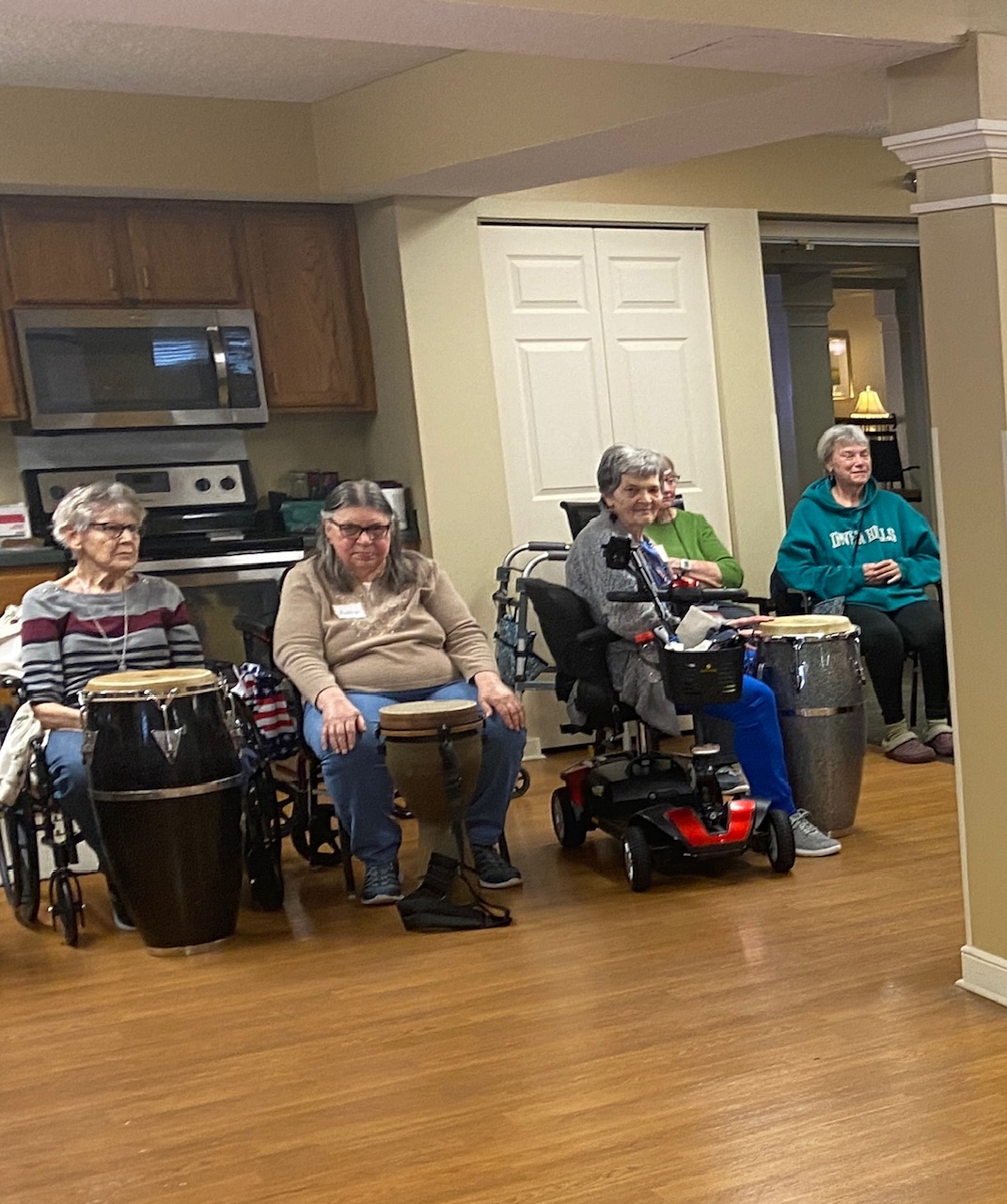
This colorful cosmic portrait really features glowing gas and obscuring dust clouds in IC 1795, a star forming region in the northern constellation Cassiopeia. The nebula’s colors were created by adopting the Hubble color palette for mapping narrowband emissions from oxygen, hydrogen, and sulfur atoms to blue, green and red colors, and further blending the data with images of the region recorded through broadband filters. Not far on the sky from the famous Double Star Cluster in Perseus, IC 1795 is itself located next to IC 1805, the Heart Nebula, as part of a complex of star forming regions that lie at the edge of a large molecular cloud. Located just over 6,000 light-years away, the larger star forming complex sprawls along the Perseus spiral arm of our Milky Way Galaxy. At that distance, IC 1795 would span about 70 light-years across.
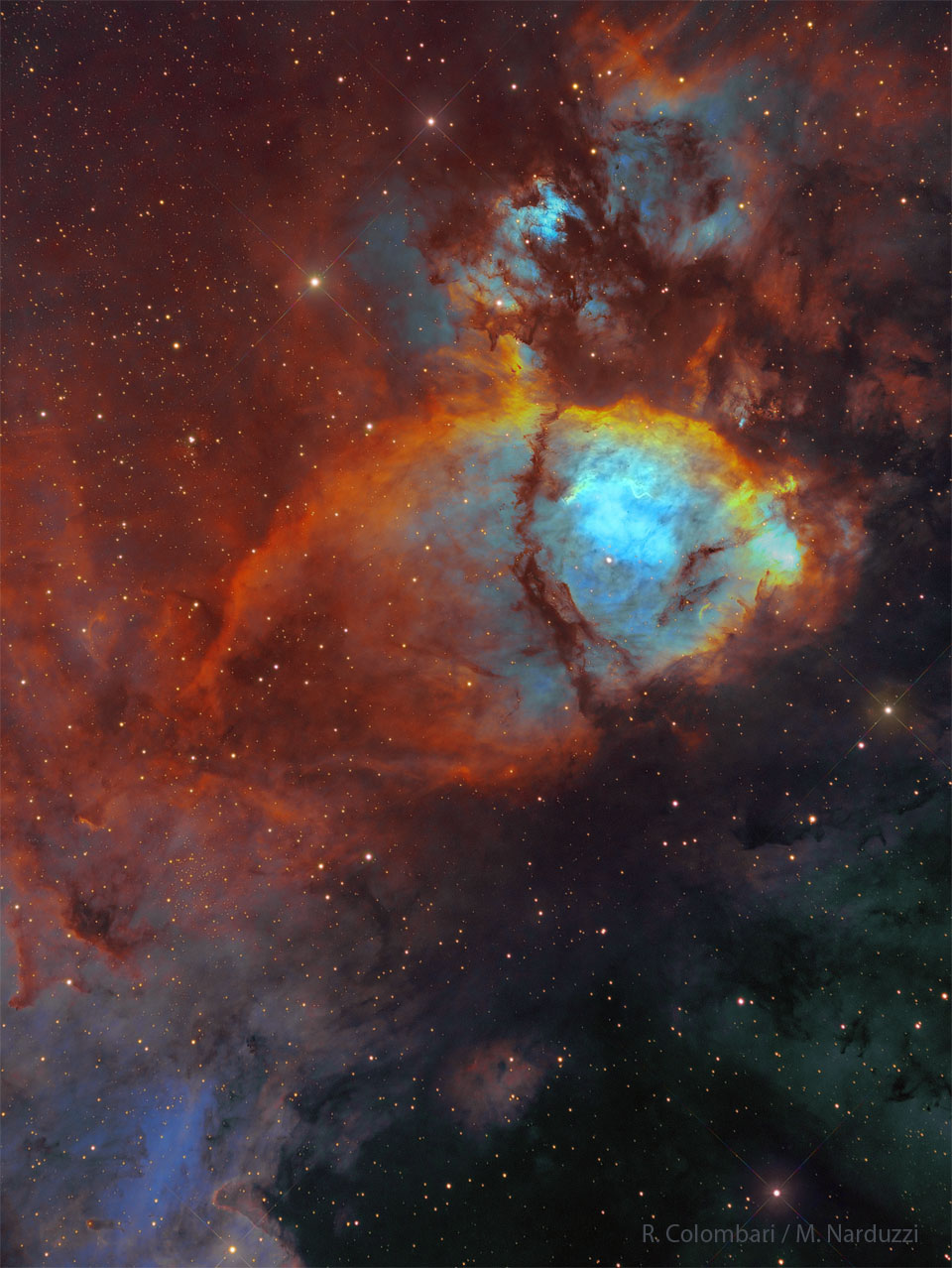
more...
Judith Marjorie Collins (born May 1, 1939 Seattle, WA) is an American singer-songwriter and musician with a career spanning seven decades. An Academy Award-nominated documentary director and a Grammy Award-winning recording artist, she is known for her eclectic tastes in the material she records (which has included folk music, country, show tunes, pop music, rock and roll and standards), for her social activism, and for the clarity of her voice. Her discography consists of 36 studio albums, nine live albums, numerous compilation albums, four holiday albums, and 21 singles.
Collins’ debut studio album, A Maid of Constant Sorrow, was released in 1961 and consisted of traditional folk songs. She had her first charting single with “Hard Lovin’ Loser” (No. 97) from her fifth studio album In My Life (1966), but it was the lead single from her sixth studio album Wildflowers (1967), “Both Sides, Now” – written by Joni Mitchell – that gave her international prominence. The single reached No. 8 on the Billboard Pop Singles chart and won Collins her first Grammy Award for Best Folk Performance. She enjoyed further success with her recordings of “Someday Soon“, “Chelsea Morning” (also written by Mitchell), “Amazing Grace“, “Turn! Turn! Turn!“, and “Cook with Honey”.
Collins experienced the biggest success of her career with her recording of Stephen Sondheim‘s “Send in the Clowns” from her tenth studio album Judith (1975). The single peaked at No. 36 on the Billboard Pop Singles chart in 1975 and then again in 1977 at No. 19, spending 27 non-consecutive weeks on the chart and earning her a Grammy Award nomination for Best Pop Vocal Performance, Female, as well as a Grammy Award for Sondheim for Song of the Year. Judith would also become her best-selling studio album; it was certified Gold by the RIAA in 1975 for sales of over 500,000 copies and Platinum in 1996 for sales of over 1,000,000 copies.
In 2017, Collins’s rendition of the song “Amazing Grace” was selected for preservation in the National Recording Registry by the Library of Congress as being “culturally, historically, or artistically significant”.That same year, she received a Grammy Award nomination for Best Folk Album for Silver Skies Blue with Ari Hest. In 2019 at the age of 80, she scored her first No. 1 album on an American Billboard Chart with Winter Stories, a duet album with Norwegian singer, songwriter, and guitarist Jonas Fjeld featuring Chatham County Line. In 2022, she released her first studio album of all original material, titled Spellbound, and it earned her another Grammy nomination for Best Folk Album.
more...Shirley Valerie Horn (May 1, 1934 – October 20, 2005) was an American jazz singer and pianist. She collaborated with many jazz musicians including Miles Davis, Dizzy Gillespie, Toots Thielemans, Ron Carter, Carmen McRae, Wynton Marsalis and others. She was most noted for her ability to accompany herself with nearly incomparable independence and ability on the piano while singing, something described by arranger Johnny Mandel as “like having two heads”, and for her rich, lush voice, a smoky contralto, which was described by noted producer and arranger Quincy Jones as “like clothing, as she seduces you with her voice”.
Shirley Horn was born and raised in Washington, D.C. Encouraged by her grandmother, an amateur organist, Horn began piano lessons at the age of four. Aged 12, she studied piano and composition at Howard University, later graduating from there in classical music. Horn was offered a place at the Juilliard School, but her family could not afford to send her there. Horn formed her first jazz piano trio when she was 20.
more...Marion Walter Jacobs (May 1, 1930 – February 15, 1968), known as Little Walter, was an American blues musician, singer, and songwriter, whose revolutionary approach to the harmonica had a strong impact on succeeding generations, earning him comparisons to such seminal artists as Django Reinhardt, Charlie Parker and Jimi Hendrix. His virtuosity and musical innovations fundamentally altered many listeners’ expectations of what was possible on blues harmonica. He was inducted into The Rock and Roll Hall of Fame in 2008, the first and, to date, only artist to be inducted specifically as a harmonica player.
Jacobs’ date of birth is usually given as May 1, 1930, in Marksville, Louisiana. He was born without a birth certificate and when he applied for a Social Security card in 1940, his birthdate was listed as May 1, 1923. Over the years he often gave different years, but May 1 was constant. In some other documents he filled out before reaching the age of majority he indicated birth years of 1925 and 1928, probably to appear to be of legal age to sign contracts for recordings and club work. After reaching the age of majority based on a birth year of 1930, he consistently gave his birth year as 1930. In the 1940 U.S. Census, his mother Beatrice reported his age at 14, making his birth year 1925. A few months after returning from his second European tour, Little Walter was involved in a fight while taking a break from a performance at a nightclub on the South Side of Chicago. He apparently sustained only minor injuries in this altercation, but they aggravated the damage he had suffered in previous violent encounters, and he died in his sleep at the apartment of a girlfriend, at 209 East 54th Street in Chicago, early the following morning.The official cause of death on his death certificate was coronary thrombosis (a blood clot in the heart); evidence of external injuries was so insignificant that the police reported that his death was due to “unknown or natural causes”, and no external injuries were noted on the death certificate. His body was buried at St. Mary’s Cemetery, in Evergreen Park, Illinois, on February 22, 1968.
more...The star system GK Per is known to be associated with only two of the three nebulas pictured. At 1500 light years distant, Nova Persei 1901 (GK Persei) was the second closest nova yet recorded. At the very center is a white dwarf star, the surviving core of a former Sun-like star. It is surrounded by the circular Firework nebula, gas that was ejected by a thermonuclear explosion on the white dwarf’s surface — a nova — as recorded in 1901. The red glowing gas surrounding the Firework nebula is the atmosphere that used to surround the central star. This gas was expelled before the nova and appears as a diffuse planetary nebula. The faint gray gas running across is interstellar cirrus that seems to be just passing through coincidently. In 1901, GK Per’s nova became brighter than Betelgeuse. Similarly, star system T CrB is expected to erupt in a nova later this year, but we don’t know exactly when nor how bright it will become.
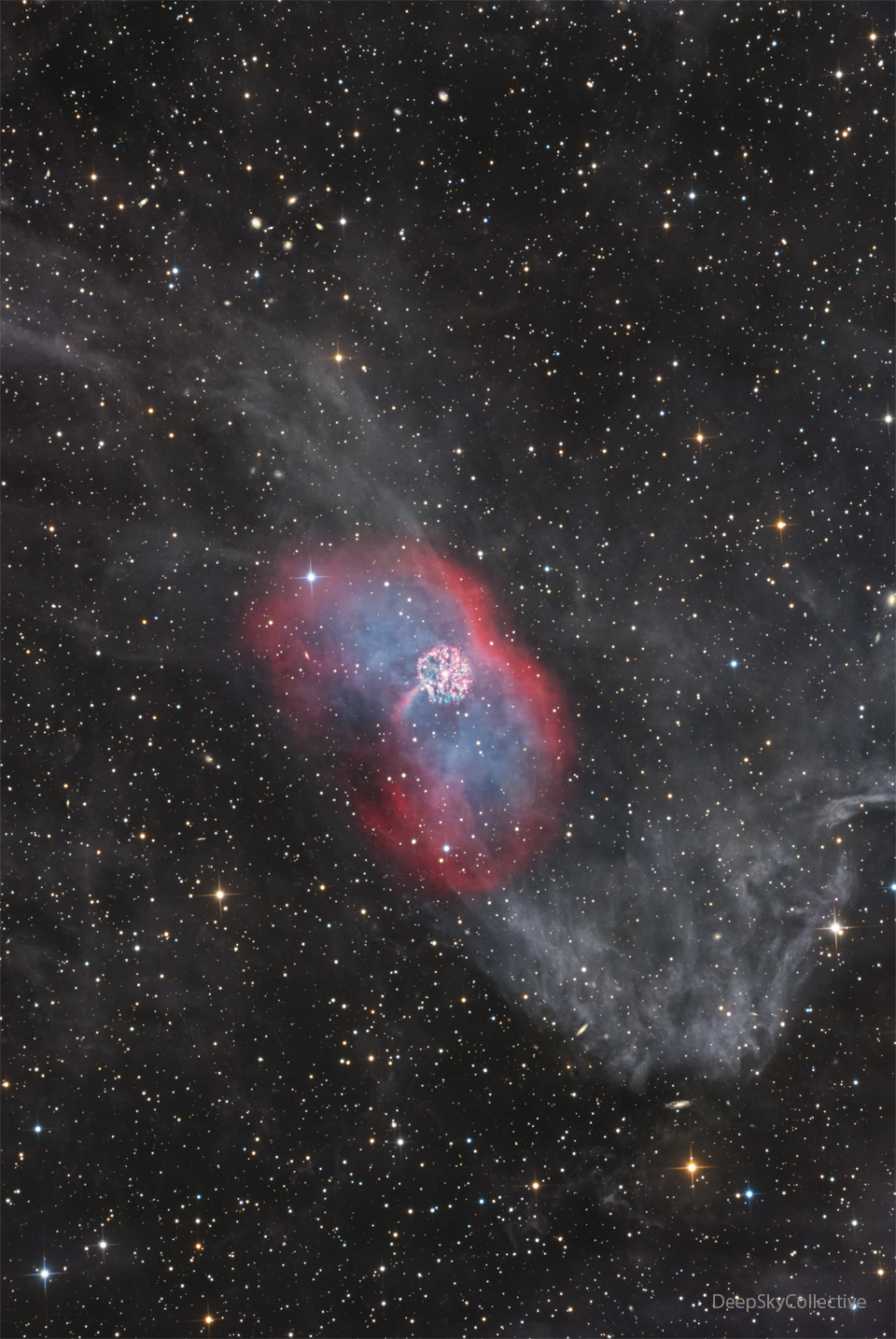
more...
Barrington Ainsworth Levy (born 30 April 1964) is a Jamaican reggae and dancehall artist. Levy was born in Clarendon, Jamaica. He formed a band called the Mighty Multitude, with his cousin, Everton Dacres; the pair released “My Black Girl” in 1977. Levy established his solo career the following year with the release of “A Long Time Since We Don’t Have No Love”; though the single was a failure, the fourteen-year-old was a popular performer at Jamaican dancehalls. In an August 2014 interview with Midnight Raver, record producer Delroy Wright revealed that it was his brother Hyman Wrightwho first met Barrington Levy in the mid-1970s through Wade “Trinity” Brammer. According to Delroy Wright, Hyman Wright recorded a host of tracks with Barrington Levy prior to introducing him to Henry “Junjo” Lawes. These tracks would eventually appear on the album Bounty Hunter, which was released on the Jah Life record label. Both record producers recorded several singles with the Roots Radics, including “Ah Yah We Deh”, “Looking My Love”, “Englishman”, “Skylarking”, “Wedding Ring Aside” and “Collie Weed”, all of which became hits and established Levy’s career. Levy’s next few singles were similarly successful, including “Shine Eye Girl”, “Wicked Intention”, “Jumpy Girl”, “Disco Music”, “Reggae Music”, “Never Tear My Love Apart”, “Jah”, “You Made Me So Happy” and “When You’re Young and in Love”. Levy then recorded several duets with Toyan, Jah Thomas and Trinity, and appeared at Reggae Sunsplash in 1980 and 1981. Although albums were not terribly important in Jamaica at the time, Levy released four albums before 1980: Shaolin Temple, Bounty Hunter, Shine Eye Gal (United Kingdom) and Englishman, a critically acclaimed record. His success led to many earlier studio and sound system performances being reissued without his consent, releases he described as “joke business”.
By the time his 1980 album Robin Hood was released, Levy was one of the biggest Jamaican stars, and saw his international fame growing as well, especially in the United Kingdom. Levy made his debut as a producer on the rare 1981 showcase album titled Run Come Ya, which was issued on the Canadian Puff Records label.
more...Mabel Bernice Scott (April 30, 1915 – July 20, 2000) was an American gospel music and R&B vocalist. She lived in New York and Cleveland before arriving on the West Coast blues scene in 1942. Mabel is probably remembered more for her 1948 hits “Elevator Boogie” and “Boogie Woogie Santa Claus” than for her 1949–1951 marriage to the featured piano player of “Elevator Boogie”, Charles Brown of Johnny Moore’s Three Blazers.
Mabel Scott was born in Richmond, Virginia, the daughter of Rachael and Thomas Scott. By 1930, she was living in New York City with her mother.She developed her singing voice in church, eventually forming an all-girl gospel group, the Song Cycles. Around 1932 Scott began singing at Harlem‘s Cotton Club with Cab Calloway‘s Orchestra and the dancing Nicholas Brothers.
more...Percy Heath (April 30, 1923 – April 28, 2005) was an American jazz bassist, brother of saxophonist Jimmy Heath and drummer Albert Heath, with whom he formed the Heath Brothers in 1975. Heath played with the Modern Jazz Quartet throughout their long history and also worked with Miles Davis, Dizzy Gillespie, Charlie Parker, Wes Montgomery, Thelonious Monk and Lee Konitz.
Heath was born in Wilmington, North Carolina, United States, and spent his childhood in Philadelphia.His father played the clarinet and his mother sang in the church choir. He started playing violin at the age of eight and also sang locally. He was drafted into the Army in 1944, trained with the Tuskegee Airmen, graduating as a 2nd Lieutenant pilot, but saw no combat.
more...Gary D. Davis (April 30, 1896 – May 5, 1972), known as Reverend Gary Davis and Blind Gary Davis, was a blues and gospel singer who was also proficient on the banjo, guitar and harmonica. Born in Laurens, South Carolina and blind since infancy, Davis first performed professionally in the Piedmont blues scene of Durham, North Carolina in the 1930s, then converted to Christianity and became a minister. After moving to New York in the 1940s, Davis experienced a career rebirth as part of the American folk music revival that peaked during the 1960s. Davis’ most notable recordings include “Samson and Delilah“[3] and “Death Don’t Have No Mercy“.
Davis’ fingerpicking guitar style influenced many other artists. His students included Stefan Grossman, David Bromberg, Steve Katz, Roy Book Binder, Larry Johnson, Alex Shoumatoff, Nick Katzman, Dave Van Ronk, Rory Block, Ernie Hawkins, Larry Campbell, Bob Weir, Woody Mann, and Tom Winslow. He also influenced Bob Dylan, the Grateful Dead, Wizz Jones, Jorma Kaukonen, Keb’ Mo’, Ollabelle, Resurrection Band, and John Sebastian (of the Lovin’ Spoonful)
more...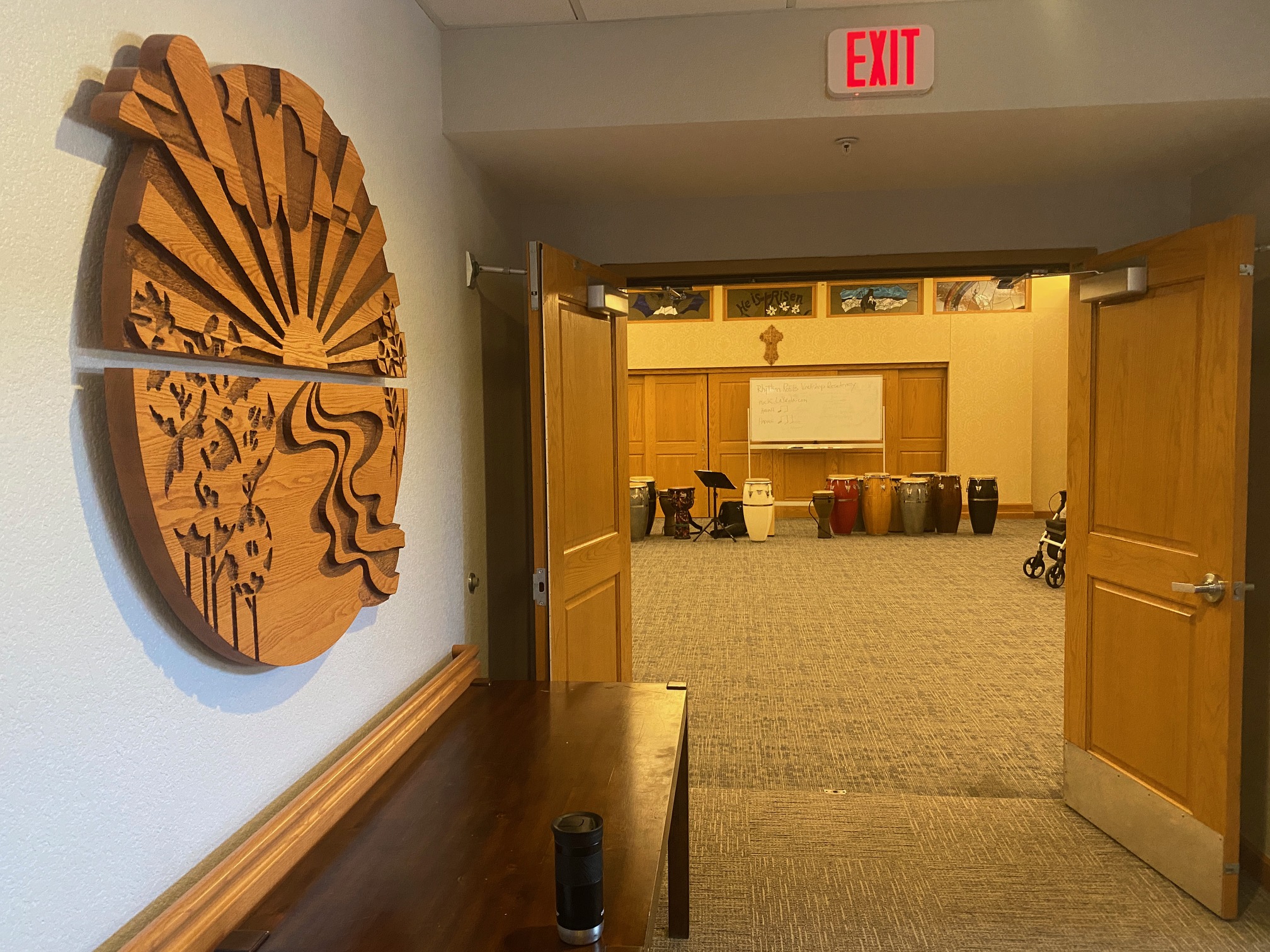
Featured in this Hubble Picture of the Week this week is the dwarf galaxy IC 776. This swirling collection of stars new and old is located in the constellation Virgo — in fact, in the Virgo galaxy cluster — 100 million light-years from Earth. While a dwarf galaxy, it’s also been classified as an SAB-type or ‘weakly barred’ spiral, one studynaming it a “complex case” in morphology. This highly detailed view from Hubble demonstrates that complexity well. IC 776 has a ragged, disturbed disc that nevertheless looks to spiral around the core, and arcs of star-forming regions.
This image is from an observation programme dedicated to the study of dwarf galaxies in the Virgo cluster, searching for sources of X-rays in such galaxies. X-rays are often emitted by accretion discs, where material that is drawn into a compact object by gravity crashes together and forms a hot, glowing disc. The compact object can be a white dwarf or neutron star in a binary pair, stealing material from its companion star, or it can be the supermassive black hole at the heart of a galaxy, devouring all around it. Dwarf galaxies like IC 776, travelling through the Virgo cluster, experience a pressure from the intergalactic gas which can both stimulate star formation and feed the central black hole in a galaxy. That can create energetic accretion discs, hot enough to emit X-rays.
While Hubble is not able to see X-rays, it can coordinate with X-ray telescopes such as NASA’s Chandra, revealing the sources of this radiation in high resolution using visible light. Dwarf galaxies are thought to be very important for our understanding of cosmology and the evolution of galaxies. As with many areas of astronomy, the ability to examine these galaxies across the electromagnetic spectrum is critical to their study.
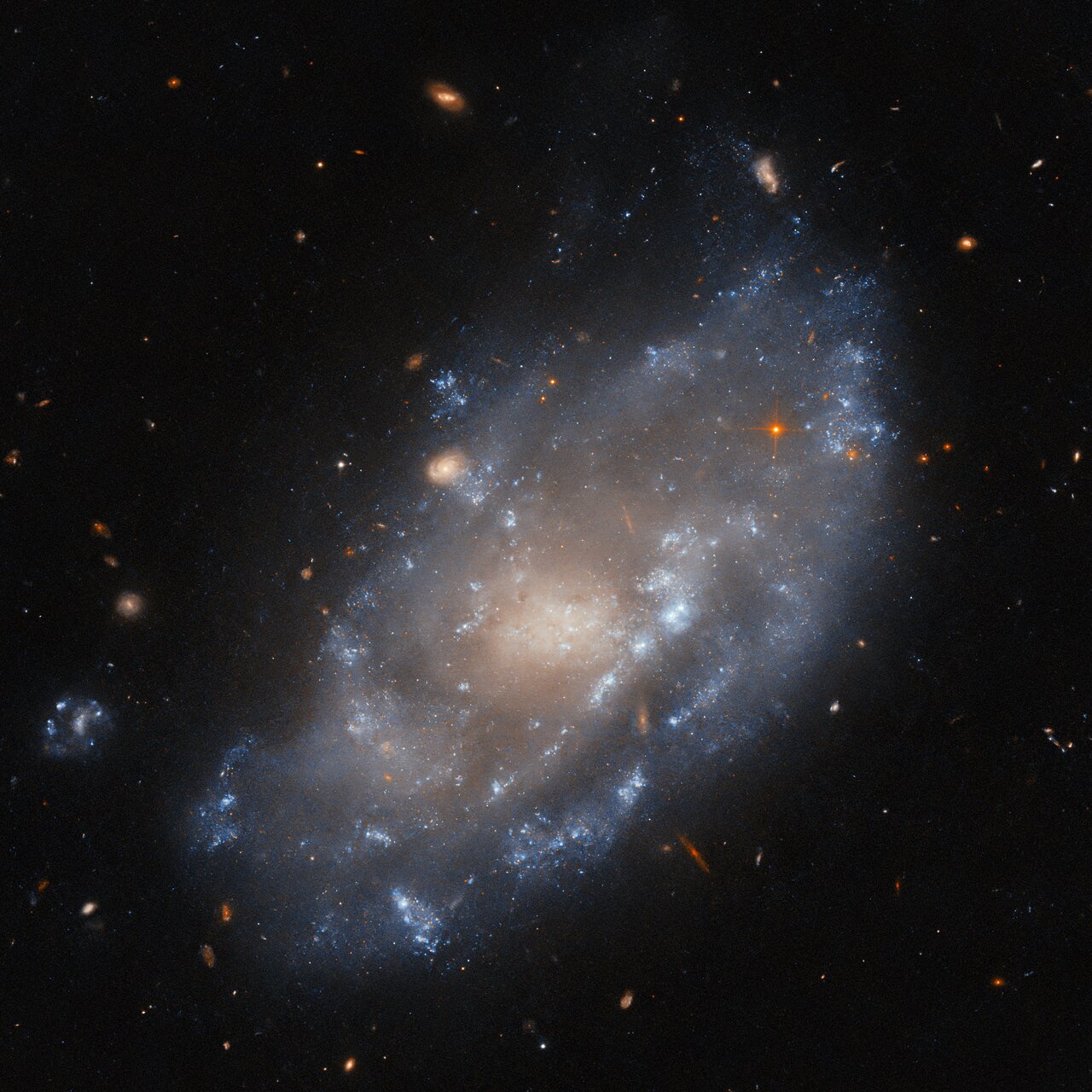
Raymundo “Ray” Barretto Pagán (April 29, 1929 – February 17, 2006 Brooklyn, NY) was an American percussionist and bandleader of Puerto Rican descent. Throughout his career as a percussionist, he played a wide variety of Latin music styles, as well as Latin jazz. His first hit, “El Watusi”, was recorded by his Charanga Moderna in 1962, becoming the most successful pachanga song in the United States. In the late 1960s, Barretto became one of the leading exponents of boogaloo and what would later be known as salsa. Nonetheless, many of Barretto’s recordings would remain rooted in more traditional genres such as son cubano. A master of the descarga (improvised jam session), Barretto was a long-time member of the Fania All-Stars. His success continued into the 1970s with songs such as “Cocinando” and “Indestructible”. His last album for Fania Records, Soy dichoso, was released in 1990. He then formed the New World Spirit jazz ensemble and continued to tour and record until his death in 2006.
more...Willie Hugh Nelson (born April 29, 1933 Abbott, TX) is an American country singer, guitarist and songwriter. He was one of the main figures of the outlaw country subgenre that developed in the late 1960s as a reaction to the conservative restrictions of the Nashville sound. The critical success of his album Shotgun Willie (1973), combined with the critical and commercial success of Red Headed Stranger (1975) and Stardust (1978), made Nelson one of the most recognized artists in country music. Nelson has acted in over 30 films, co-authored several books, and has been involved in activism for the use of biofuels and the legalization of marijuana.
Nelson wrote his first song at age seven and joined his first band at ten. During high school, he toured locally with the Bohemian Polka as their lead singer and guitar player. After graduating from high school in 1950, he joined the U.S. Air Force but was later discharged due to back problems. After his return, Nelson attended Baylor University for two years but dropped out because he was succeeding in music. He worked as a disc jockey at radio stations in his native Texas, and in several radio stations in the Pacific Northwest, all the while working as a singer and songwriter throughout the late 1950s. During that time, he wrote songs that would become country standards, including “Funny How Time Slips Away“, “Hello Walls“, “Pretty Paper“, and “Crazy“. In 1960 he moved to Nashville, Tennessee, and later signed a publishing contract with Pamper Music which allowed him to join Ray Price’s band as a bassist. In 1962, he recorded his first album, …And Then I Wrote. Due to this success, Nelson signed in 1964 with RCA Victor and joined the Grand Ole Opry the following year. After mid-chart hits in the late 1960s and the early 1970s, Nelson grew weary of the corporate Nashville music scene, and in 1972 he moved to Austin, Texas. The ongoing music scene of Austin motivated Nelson to return to performing, appearing frequently at the Armadillo World Headquarters.
In 1973, after signing with Atlantic Records, Nelson turned to outlaw country, including albums such as Shotgun Willie and Phases and Stages. In 1975, he switched to Columbia Records, where he recorded the critically acclaimed album Red Headed Stranger. The same year, he recorded another outlaw country album, Wanted! The Outlaws, along with Waylon Jennings, Jessi Colter, and Tompall Glaser. During the mid-1980s, while creating hit albums like Honeysuckle Rose and recording hit songs like “On the Road Again“, “To All the Girls I’ve Loved Before“, and “Pancho and Lefty“, he joined the country supergroup The Highwaymen, along with fellow singers Johnny Cash, Waylon Jennings, and Kris Kristofferson. In 1985, he helped organize the first Farm Aid concert to benefit American farmers; the concerts have been held annually ever since and Nelson has been a fixture, appearing at every one.
In 1990, Nelson’s assets were seized by the Internal Revenue Service, which claimed that he owed $32 million. The difficulty of paying his outstanding debt was aggravated by weak investments he had made during the 1980s. In 1992, Nelson released The IRS Tapes: Who’ll Buy My Memories?; the profits of the double album—destined to the IRS—and the auction of Nelson’s assets cleared his debt. During the 1990s and 2000s, Nelson continued touring extensively, and released albums every year. Reviews ranged from positive to mixed. He explored genres such as reggae, blues, jazz, and folk.
Nelson made his first movie appearance in the 1979 film The Electric Horseman, followed by other appearances in movies and on television. Nelson is a major liberal activist and the co-chair of the advisory board of the National Organization for the Reform of Marijuana Laws (NORML), which is in favor of marijuana legalization. On the environmental front, Nelson owns the biodiesel brand Willie Nelson Biodiesel, whose product is made from vegetable oil. Nelson is also the honorary chairman of the advisory board of the Texas Music Project, the official music charity of the state of Texas.
more...Jean-Baptiste Frédéric Isidor, Baron Thielemans (29 April 1922 – 22 August 2016), known professionally as Toots Thielemans, was a Belgian jazz musician. He was mostly known for playing the chromatic harmonica, as well as his guitar and whistling skills, and composing. According to jazz historian Ted Gioia, his most important contribution was in “championing the humble harmonica”, which Thielemans made into a “legitimate voice in jazz”. He eventually became the “preeminent” jazz harmonica player.
His first professional performances were with Benny Goodman‘s band when they toured Europe in 1949 and 1950. He emigrated to the U.S. in 1951, becoming a citizen in 1957. From 1953 to 1959 he played with George Shearing, and then led his own groups on tours in the U.S. and Europe. In 1961 he recorded and performed live one of his own compositions, “Bluesette“, which featured him playing guitar and whistling. In the 1970s and 1980s, he continued touring and recording, appearing with musicians such as Oscar Peterson, Ella Fitzgerald, Sarah Vaughan, Bill Evans, Dizzy Gillespie, Kenny Werner, Pat Metheny, Jaco Pastorius, Mina Mazzini, Elis Regina, Quincy Jones, George Shearing, Natalie Cole, Billy Joel, Paul Simon, and Paquito D’Rivera.
Thielemans recorded the soundtracks for The Pawnbroker (1964), Midnight Cowboy (1969), The Getaway(1972), Cinderella Liberty (1973), The Sugarland Express (1974) and Looking for Mr. Goodbar (1977). His harmonica theme song for the popular Sesame Street TV show was heard for 40 years. He often performed and recorded with Quincy Jones, who once called him “one of the greatest musicians of our time.” In 2009 he was designated a Jazz Master by the National Endowment for the Arts, the highest honor for a jazz musician in the United States.
more...Edward Kennedy “Duke” Ellington (April 29, 1899 – May 24, 1974) was an American jazz pianist, composer, and leader of his eponymous jazz orchestra from 1923 through the rest of his life.
Born and raised in Washington, D.C., Ellington was based in New York City from the mid-1920s and gained a national profile through his orchestra’s appearances at the Cotton Club in Harlem. A master at writing miniatures for the three-minute 78 rpm recording format, Ellington wrote or collaborated on more than one thousand compositions; his extensive body of work is the largest recorded personal jazz legacy, and many of his pieces have become standards. He also recorded songs written by his bandsmen, such as Juan Tizol‘s “Caravan“, which brought a Spanish tinge to big band jazz.
At the end of the 1930s, Ellington began a nearly thirty-year collaboration with composer-arranger-pianist Billy Strayhorn, whom he called his writing and arranging companion. With Strayhorn, he composed multiple extended compositions, or suites, as well as many short pieces. For a few years at the beginning of Strayhorn’s involvement, Ellington’s orchestra featured bassist Jimmy Blanton and tenor saxophonist Ben Webster and reached a creative peak. Some years later following a low-profile period, an appearance by Ellington and his orchestra at the Newport Jazz Festival in July 1956 led to a major revival and regular world tours. Ellington recorded for most American record companies of his era, performed in and scored several films, and composed a handful of stage musicals.
Although a pivotal figure in the history of jazz, in the opinion of Gunther Schuller and Barry Kernfeld, “the most significant composer of the genre”, Ellington himself embraced the phrase “beyond category”, considering it a liberating principle, and referring to his music as part of the more general category of American Music. Ellington was known for his inventive use of the orchestra, or big band, as well as for his eloquence and charisma. He was awarded a posthumous Pulitzer Prize Special Award for music in 1999.
more...
More Posts
- Rhythm Roots Workshops @ Tasks Unlimited & Cerenity Humboldt
- Cosmos NGC 2237
- L. Shankar
- Preston Love
- Teddy Edwards
- Johnny Shines
- World Drumming Babatunde Olatunji
- Daily Roots Johnny Osbourne
- Harry Belafonte Memorial
- Cosmos M81
- Watermelon Slim
- Albert King
- Ella Fitzgerald
- World Music Ali Farka Toure, Tinariwen, Fatoumata Diawara, Rokia
- Daily Roots Yabby You
- Cosmos ACO S520
- John Williams
- Joe Henderson
- Johnny Griffin
- STOP WAR IN UKRAINE World Music Jozef Rybár, Ján Berky, Švihrovská